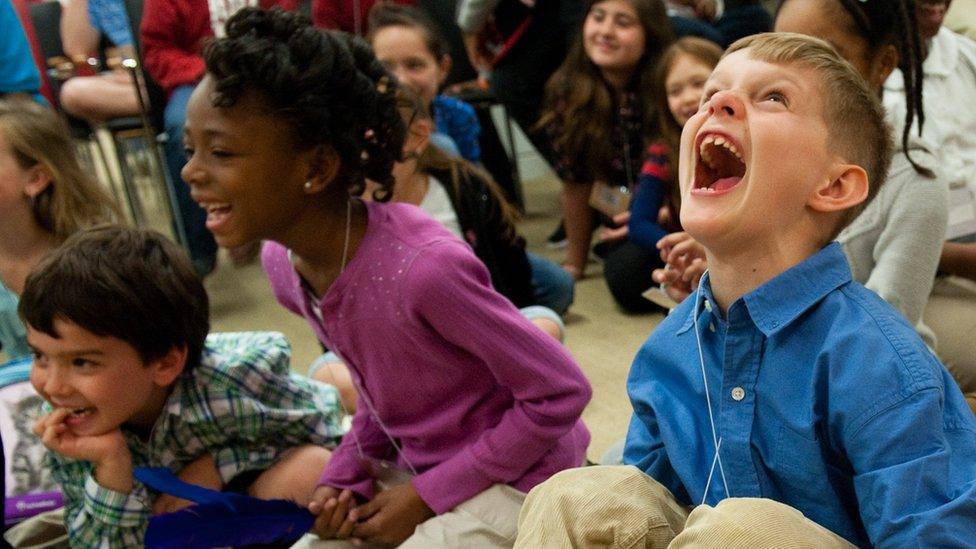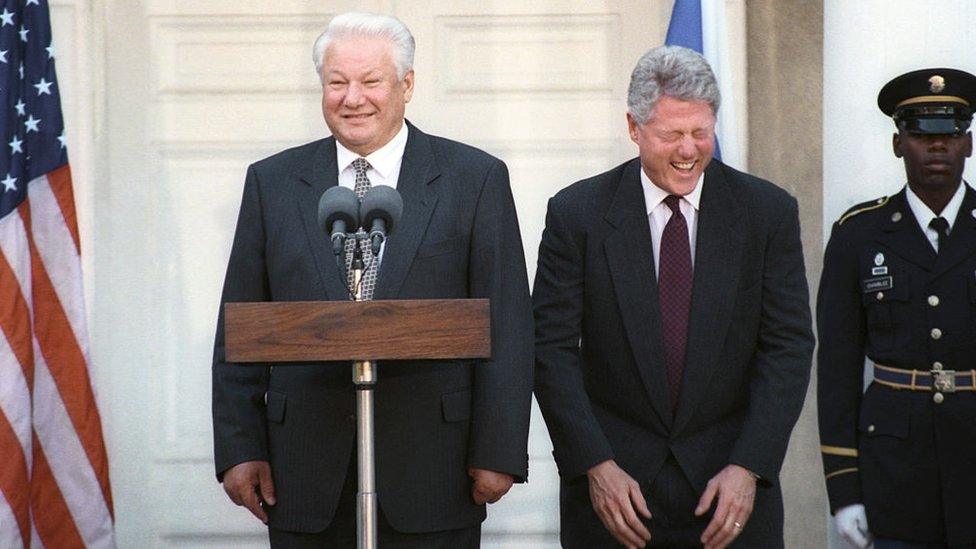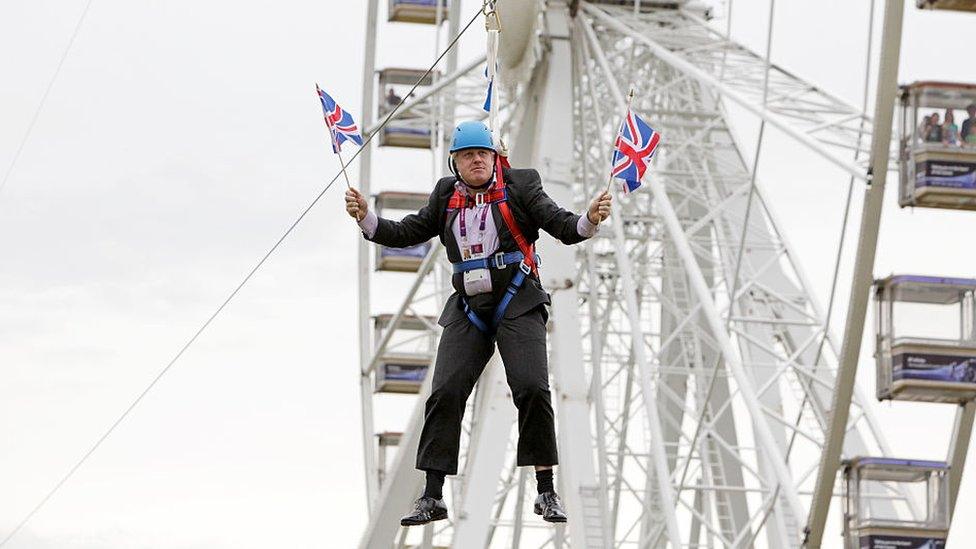The one thing that makes you 30 times more likely to laugh
- Published

US President Donald Trump was greeted with laughter in September when he told the UN that he had accomplished more than "almost any administration" in his country's history.
Mr Trump admitted that he "didn't expect" that reaction - but that it was "just fine".
It was one example of the many reasons people laugh - and most of them are not because somebody is being particularly funny.
Laughter is primarily a form of bonding; we are 30 times more likely to laugh, external if we are with others than if we are alone.
It is an ancient, universal reaction that is not even limited to humans; it has been documented in many animal species, including apes and even rats.
When rats play with each other or are tickled, they emit a distinct chirping sound which scientists have linked to laughter., external It is used as a signal that they are only play-fighting rather than displaying aggression.

Apes also laugh, scientists say
If rats display this kind of behaviour, it is not too surprising that humans employ laughter in a complex and nuanced way.
We use laughter to make and maintain social bonds. It is an outward display that we understand each other, and also functions to exclude others who are outside our group.
This social and emotional control makes laughter incredibly powerful, so it is unsurprising to find that it is constantly exploited by people in both political and personal ways.

Why we laugh
Laughter is a spontaneous non-verbal vocal expression, like a scream or a sob.
The noise we make when we laugh is very similar to the play grunts that apes make.
Unlike speech, producing this sound involves almost no movement of the tongue, jaw or lips. It is closer to the sound that other mammals make than human speech.
Although scientists still do not know exactly why we make this sound, it may be because it is one of the simplest way of making a sound with our voices - we are just squeezing air out in bursts.
While our use of laughter develops over time, it is an inherent action; blind and deaf babies will laugh when they are tickled.

The political

Comedians are given licence to earn our laughter, but there are many others who have used laughter, or tried to use it, to their own ends.
Russian officials have been accused of using mockery to deflect blame and belittle challengers, most recently over the 2018 Novichok poisoning in Salisbury.
But humour does not have to be divisive to be powerful.
US President Bill Clinton famously changed an ill-tempered press statement by Russia's Boris Yeltsin into a hilarious event,, external simply by behaving as if Mr Yeltsin was being intentionally witty, and laughing helplessly.
However, Mr Clinton took care to not look like he was laughing at him, to suggest they were both in on the joke.

Bill Clinton and Boris Yeltsin at the press conference
Other public figures appear to carefully cultivate a "funny" image, where they often appear the butt of the joke.
For example, MP Boris Johnson was arguably first perceived as funny on satirical TV quiz show Have I Got News For You, external.
Mr Johnson kept up this light-hearted, funny persona over the following couple of decades, helping him to bat away critical comments with jokes and bluster.
Whether it was getting stuck on a zip wire, or joking about never becoming prime minister, difficult questions could be disarmed, and his personal charm seemed enhanced, by the sounds of laughter.
The personal
Laughter is also an important part of our everyday lives.
For example, I walked slap bang into another woman when I was crossing the road the other day.
We both laughed, but not because it was funny. We were laughing to show that we were both OK and not hurt or trying to hurt each other, or trying to steal one another's mobile phones.
This interaction was successful because it relies on us both understanding and using laughter in the same way.
Observational studies indicate that most laughter actually stems from statements and comments,, external rather than jokes. The person who has just spoken laughs the most frequently, suggesting laughter is often not only a reaction to something someone else has said.
This type of "bonding" laughter is finessed over time through social interaction.
One of my lab's current studies indicates that our understanding of social laughter develops over our early adult life, and that it is not until we are in our 30s that we become fully adept at using it.
It is also dependent on a desire to find affiliation; research suggests that teenage boys at risk of psychopathy find laughter much less contagious than their peers., external

Boris Johnson became stuck on a zip wire in Victoria Park
Another key use of laughter is to help cope with stressful situations.
Couples who discuss an area of disagreement in their relationship with positive expressions like laughter immediately become less stressed, research suggests, external.
They are also happier in their relationships and stay together for longer.
However, this only works if both members of the couple share the joke.
For example, if one person is laughing and saying "oh yes, I do buy too many books" and the other person says, unsmilingly, "it's a massive problem and I wish you would sort it out", then no-one feels better.
Laughter works, not because it is a kind of magic dust that makes people happier, but because it indicates you are comfortable enough to use it as a tool to negotiate a better mood, together.
Because the bottom line - for all almost all laughter - is that people laugh when they are with people they like, but also when they feel physically safe.
When, where and who you laugh with is telling you something very important about your emotional world.
Laughter can be a seriously important part of how we can help ourselves cope with difficult situations.

About this piece
This analysis piece was commissioned by the BBC from an expert working for an outside organisation.
Sophie Scott, external is a professor of Cognitive Neuroscience at University College London.

Edited by Eleanor Lawrie